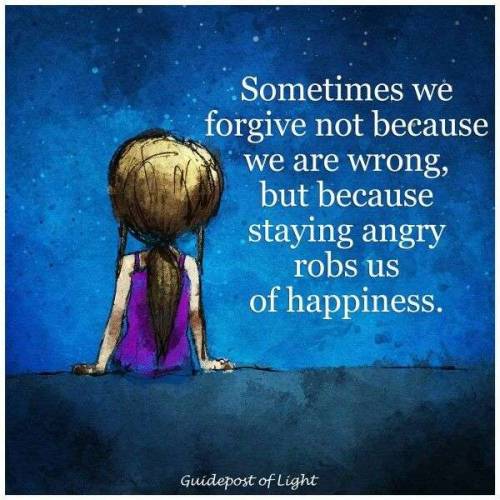Eight Pillars of Joy: Forgiveness

Free yourself from the past
Remember the humanity of those who have wronged you
Take back control of your fate and feelings
It’s difficult to go through life without feeling wronged in some form. In some cases, other people have violated our boundaries in significant ways. Feelings of anger and even hatred may be normal and appropriate, but when those feelings linger, it can harm us long after the initial injury. Worse, those feelings can bind us to the person they’re directed to.
Everett Worthington Jr. and Michael Scherer found that unforgiveness compromises the immune system, including the disruption of hormone production and the way cells fight off infections. Even short bursts of resentment, anger, hostility, and hatred can have significant physical effects. One study by psychologist Charlotte vanOyen Witvliet shows that people who remembered grudges had an increased heart rate and blood pressure. They remarked that they felt sad, angry, intense, and less in control. Empathizing with their offenders lessened their stress responses until they were back to normal.
Why are people cruel? We weren’t born to cause the world harm. It’s important to take a step back and see the whole picture, not just one person hurting another, but the reason they felt the need to cause that hurt. We then need to react holistically. For example, let’s say a man lashes out at another and we put him in jail. No, he shouldn’t have lashed out, but putting him in jail does nothing to help him feed his children because he can’t get a job. He will likely lash out again as his initial problem persists. The man he struck might have said something about the lavish gifts he was buying his own children for their birthdays, not realizing how that would incite the already upset man. When you see the whole picture, you may start to feel concern for others and the situations that have brought on this hostility.
There is a well-known line that says “forgive and forget”. Yes, we do need to forgive in order to move on in our lives and retain our health and happiness, but that does not mean we should forget the negativity or the wrongs that have been done. If we were to forget something entirely, there is a chance we would allow it to happen again. Of course we need to seek justice, or respond to what has happened in some way. We must then accept that it happened, but we must also be sure that our response does not mirror the others’ negativity, lest we become like them and lose our happiness. This is why we need to forgive and let go as we are able, but not forget.
“Without forgiveness, we remain tethered to the person who harmed us. We are bound to the chains of bitterness, tied together, trapped. Until we can forgive the person who harmed us, that person will hold the keys to our happiness, that person will be our jailor. When we forgive, we take back control of our own fate and our feelings. We become our own liberator.” - Archbishop Desmond Tutu, The Book of Forgiving
Exercises
- For many, forgiveness will be an ongoing process, not a one-time action. Accept your negative feelings about someone when they come up as something natural and okay, give them a label (anger, sadness…), then let them go. Repeat as many times as needed.
- Think of someone who has harmed you in the past. How do you feel about them? Imagine that person has now harmed someone else. What can you tell him or her that can help them release their negative feelings toward the one who harmed them?
Next: Healthy Diet (Breakout)